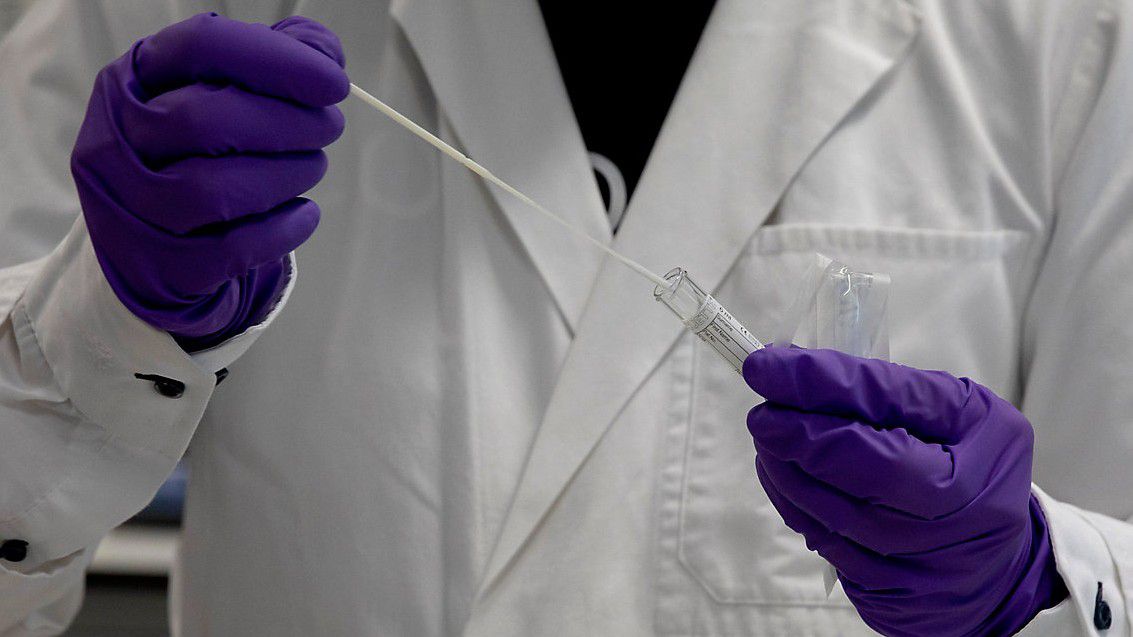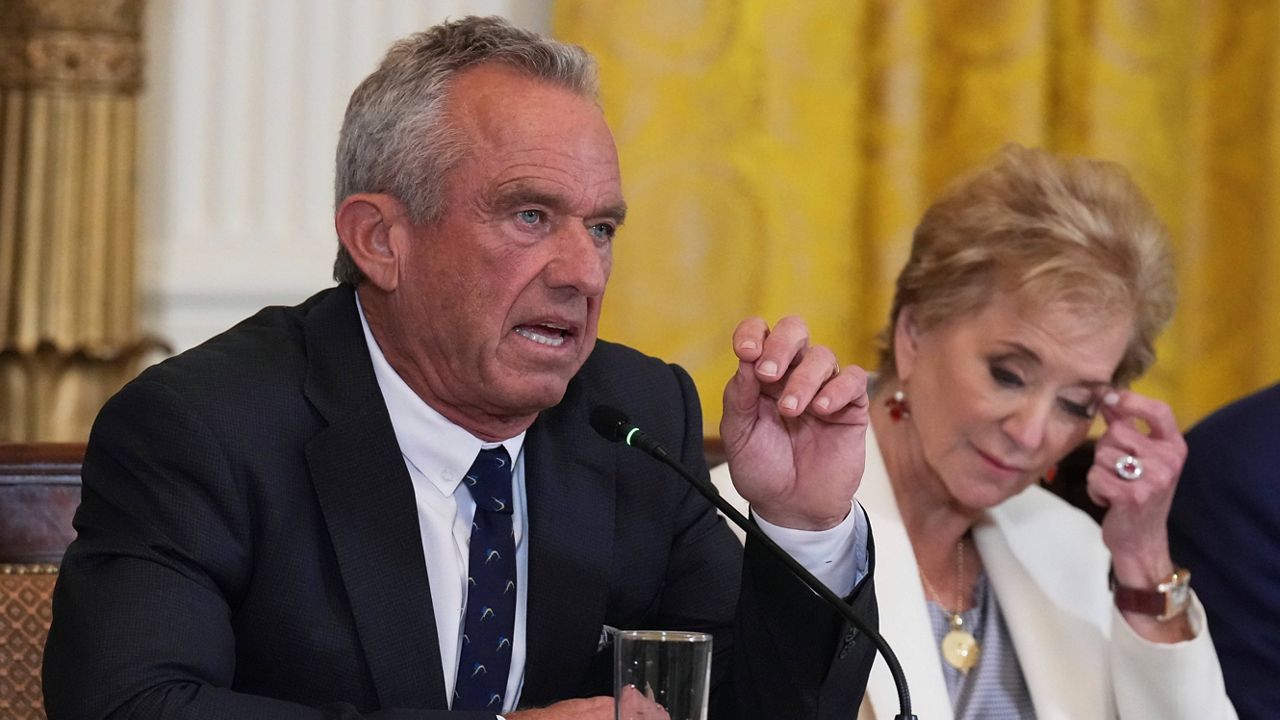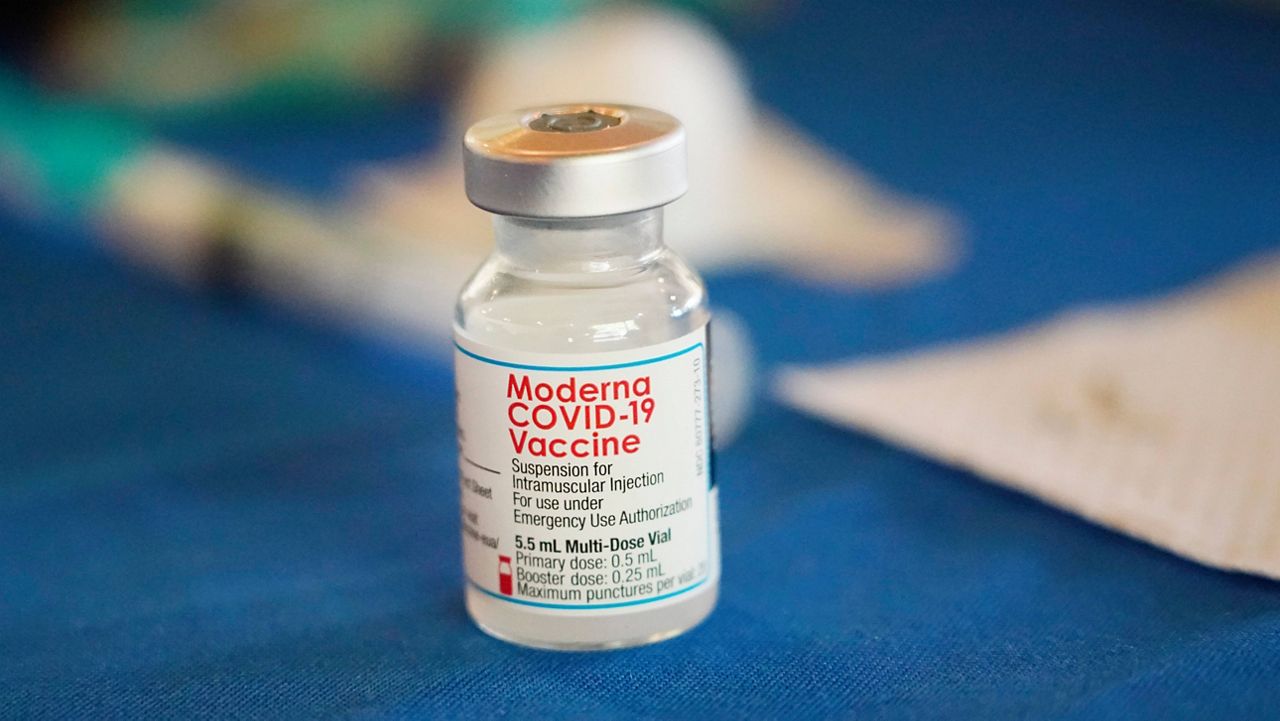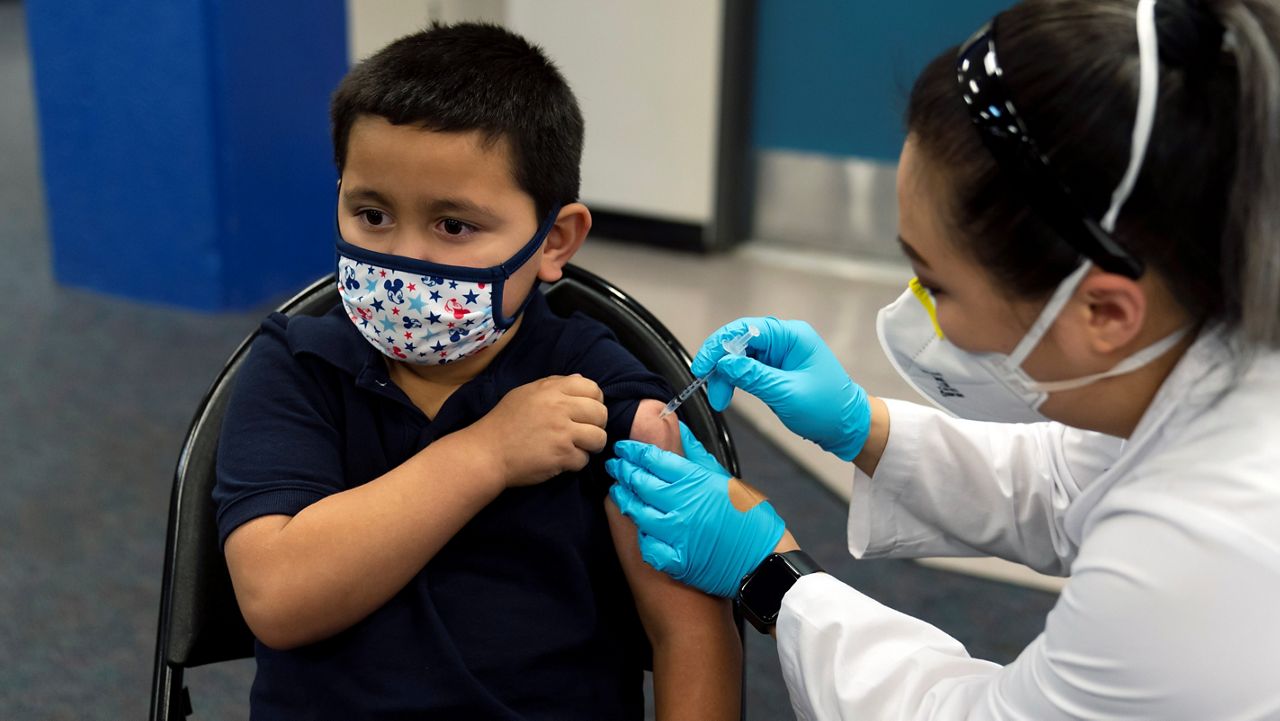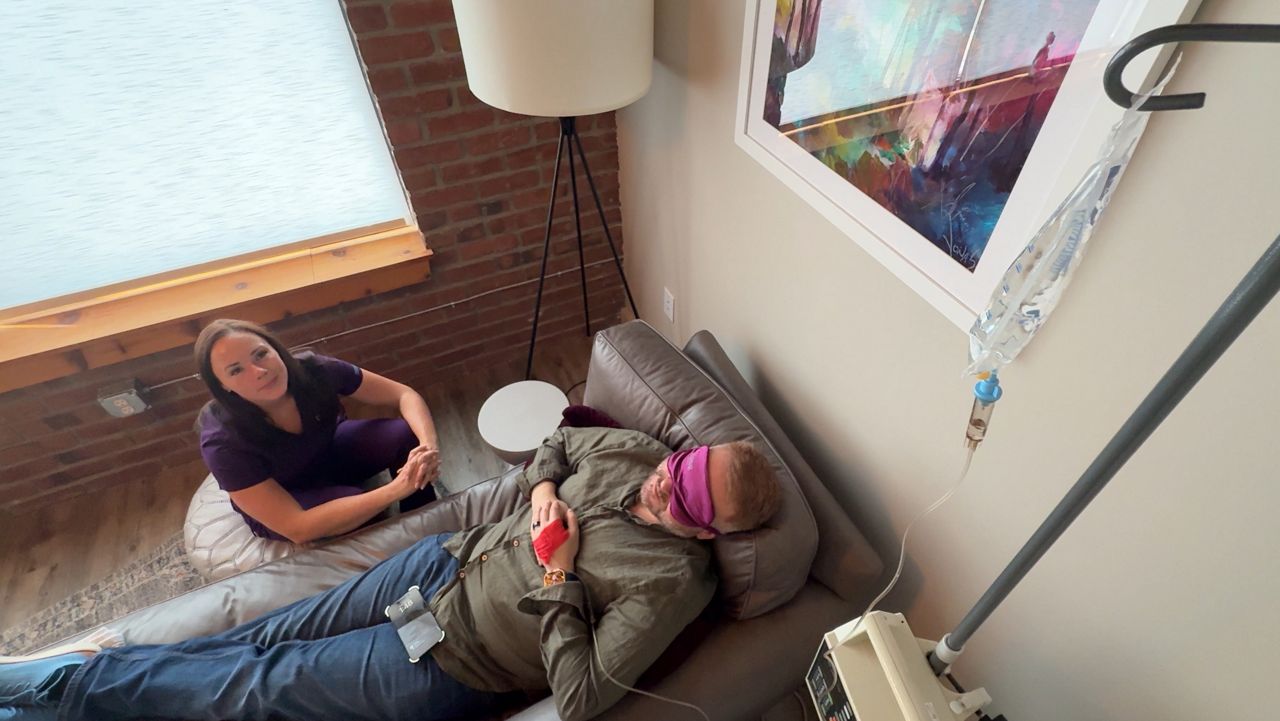The White House will form its game plan for the omicron variant of COVID-19 as new research shows the definition of "fully vaccinated" changing is not a matter of if, but when.
What You Need To Know
- The White House will make its plans on how to battle omicron based on community providers in North Carolina
- A joint study with Duke University Hospital and National Institutes of Health revealed the two-dose Moderna vaccine is not enough against the omicron variant
- Research from a Duke virologist revealed blood samples tested with the booster shot protected the human body substantially more than without it
- An infectious disease expert at Duke said they're already seeing effects of holiday gatherings, and predict a squeeze on the health care system due to the convergence of omicron with delta as the flu season approaches
The senior policy advisor for equity on the White House COVID-19 Response Team is watching how the omicron variant impacts North Carolina.
Dr. Cameron Webb, first appointed to his current title in January of this year, said maintaining communication with doctors and organizational leaders on the ground level should never end if they want President Joe Biden to make the right call.

“Our job is to arm him with the best information possible to make decisions,” Webb said.
Those decisions, the doctor said, will be based on feedback the team receives in pockets across the state for what is and isn’t working at the community level.
"I think I've learned along with the rest of America, COVID continues to be a formidable opponent not only for the United States but for the world," Webb said.
The Centers for Disease Control and Prevention labeled most counties in the state as areas with high rates of transmission.
“Now, we have the omicron variant on the horizon and it continues to throw new challenges at us," Webb, who completed medical school at Wake Forest, said of putting an infrastructure in place to avoid the same health inequities in the future.
No one has been more up to the task of knowing what lies around the corner than Dr. David Montefiori.
“If you received the booster, the vaccine is going to work as well against omicron as two doses have been working against delta," Montefiori said.
He was part of a joint study conducted in two separate labs: one at Duke University and the other at the National Institutes of Health.
"Boost up now" is the message being received after some recently published results from his lab team at Duke University show the novel coronavirus’s latest form.
“What we found after two doses of the Moderna vaccine is that they were not very effective against omicron,” Montefiori said. He said it was important to get an early indication as to whether this version of the virus would be a threat to the vaccine.
Montefiori said omicron’s 15 mutations studied in their report are in a region of the spike protein, a defining characteristic of COVID-19 seen in images across the world, that neutralizes antibodies target.
For context, Montefiori said neutralization is an integral part of the immune response that vaccines induce to protect people.
Their work in the lab tested blood samples from people who got the vaccine for an ability to block infection.
“We mix the blood samples with the virus and then we add that to cells to see if cells get infected,” he said. According to their research, the two-round Moderna is 50 times less effective against omicron.
“I think in the age of omicron, 'fully vaccinated' is going to mean that you got boosted," Montefiori said.
Right now, you are considered “fully vaccinated” if you receive the first shots of Pfizer or Moderna, or one shot of the J & J.
“The day might be coming where the vaccine might need to be modified,”Montefiori said.
Montefiori said Moderna and other makers of immunization are making a vaccine specific to this latest strain. What they learned is the MRNA design of the two-dose shot will need to be tailored to this strain—an attainable possibility based on the technology behind each injection.
As an expert on viruses, Montefiori studies changes to viruses over time. He said with omicron being more transmissible and contagious than the dominant strain of delta, there is cause for concern.
The possibility has become a reality at Duke University Hospital for Dr. Becky Smith.
“I really wanted to hammer out that what we’re seeing, the impact in the hospital now, of Thanksgiving-related gatherings," Smith said. "It takes a week to two weeks to see that case count increase.”
Smith said 86% of the patients suffering from COVID-19 symptoms inside their hospital are unvaccinated.
The infectious disease expert confirmed 96% of patients in the ICU are unvaccinated and 100% of all patients using an assisted breathing machine at Duke University Hospital are unvaccinated.
“Really concerned about what to expect as the Christmas and New Year holiday approach,” she said.
Smith is really worried about seeing the convergence of delta-related cases, and what physicians are mostly seeing right now with the layering in of the omicron variant.
“Which again, if you are unvaccinated, we actually aren’t sure how that’s going to pan out," Smith said. "What proportion of people are going to be hospitalized?”
Smith anticipates a squeeze in health care. She said flu season will begin in late December or sometime in January.
“The point to be made is that we want to eliminate the spread of any COVID-19 because it decreases the virus’s opportunity to make worse variants, if that makes sense,” she said. “I think the message there is this is a global pandemic. If we do not provide help to countries that require assistance getting [the] vaccine, we will be in this cycle for a long, long time.”
Smith's plea is simple.
“Please go get vaccinated because we want people to have access to care to non COVID-19-related issues, because there are only so many beds in a hospital and what happens when COVID-19 cases are surging - elective cases/surgeries become canceled again,” she said.





